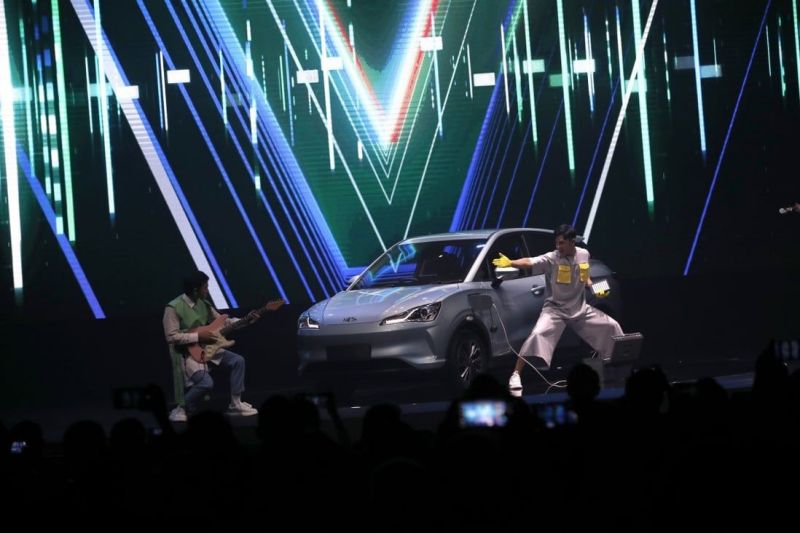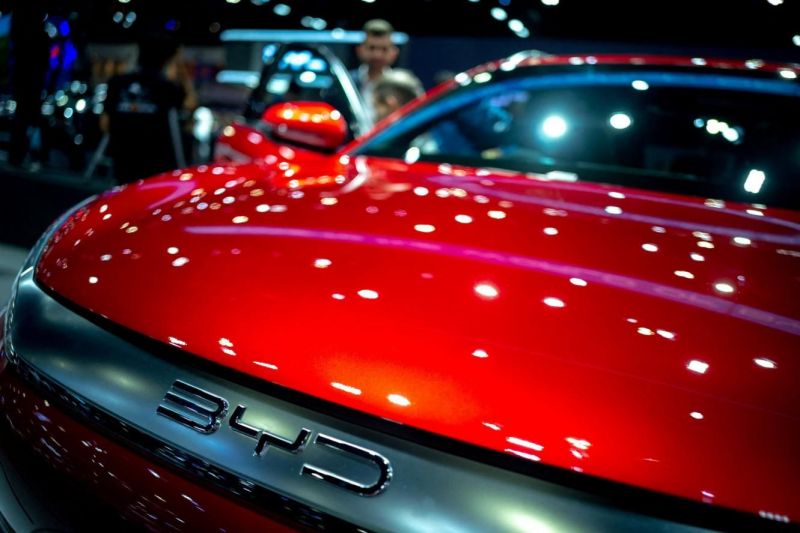●GAC Aion, the electric vehicle (EV) unit of the GAC, the Chinese partner of Toyota and Honda, said 100 of its Aion Y Plus vehicles are to be shipped to Thailand
●Company plans to set up Southeast Asian headquarters in Thailand this year as it prepares to build a plant in the country

Chinese state-owned carmaker Guangzhou Automobile Group (GAC) has joined its domestic rivals in tapping Southeast Asian demand with a shipment of 100 electric cars to Thailand, marking its first overseas consignment into a market historically dominated by Japanese carmakers.
GAC Aion, the electric vehicle (EV) unit of the GAC, the Chinese partner of Toyota and Honda, said in a statement on Monday evening that 100 of its right-hand drive Aion Y Plus vehicles would be shipped to Thailand.
“It marks a new milestone for GAC Aion as we export our vehicles to an overseas market for the first time,” the company said in the statement. “We are taking a first step in internationalising Aion’s business.”
The EV maker added that it would set up its Southeast Asian headquarters in Thailand this year as it prepares to build a plant in the country to serve a fast-growing market. In the first half of 2023, over 31,000 EVs were registered in Thailand, more than three times the number for all of 2022, Reuters reported citing government data.

Aion, the third-largest EV brand in terms of sales in the mainland China market, follows BYD, Hozon New Energy Automobile and Great Wall Motor which have all produced cars in Southeast Asia.
On the mainland, the carmaker trailed only BYD and Tesla in terms of sales between January and July, delivering 254,361 electric cars to customers, nearly double the 127,885 units in the same period a year ago, according to the China Passenger Car Association.
“Southeast Asia has become a key market targeted by Chinese EV makers because it lacked models from established players that already have a big market share,” said Peter Chen, an engineer with car parts maker ZF TRW in Shanghai. “The Chinese companies that started to tap the market have aggressive expansion plans in the region now that competition in China has escalated.”
Indonesia, Malaysia and Thailand are the three main Asean (Association of Southeast Asian Nations) markets to which Chinese carmakers aim to export a large volume of battery-powered vehicles priced below 200,000 yuan (US$27,598), according to Jacky Chen, head of Chinese carmaker Jetour’s international business.
Chen of Jetour told the Post in an interview in April that turning a left-hand drive car into a right-hand drive model would incur an extra cost of several thousand yuan per vehicle.
Aion did not announce prices for the right-hand drive edition of Y Plus in Thailand. The pure electric sport-utility vehicle (SUV) starts at 119,800 yuan on the mainland.
Jacky Chen, head of Chinese carmaker Jetour’s international business, told the Post in an interview in April that turning a left-hand drive car into a right-hand drive model would incur an extra cost of several thousand yuan per vehicle.
Thailand is Southeast Asia’s largest car producer and second-largest sales market after Indonesia. It reported sales of 849,388 units in 2022, up 11.9 per cent on year, according to consultancy and data provider just-auto.com. This compares with the 3.39 million vehicles sold by the six Asean countries – Singapore, Thailand, Indonesia, Malaysia, Vietnam and the Philippines – in 2021. That was a 20 per cent rise over 2021’s sales.
Early this month, Shanghai-based Hozon said it had signed a preliminary pact with Handal Indonesia Motor on July 26 to build its Neta-branded electric cars in the Southeast Asian nation. Operations at the joint-venture assembly plant are expected to begin in the second quarter of next year.
In May, Shenzhen-based BYD said it had agreed with the Indonesian government to localise production of its vehicles. The world’s largest EV maker, which is backed by Warren Buffett’s Berkshire Hathaway, expects the factory to commence production next year and will have an annual capacity of 150,000 units.
China is poised to overtake Japan as the world’s largest car exporter this year.
According to Chinese customs authorities, the country exported 2.34 million cars in the first six months of 2023, beating the overseas sales of 2.02 million units reported by the Japan Automobile Manufacturers Association.
Post time: Aug-24-2023




